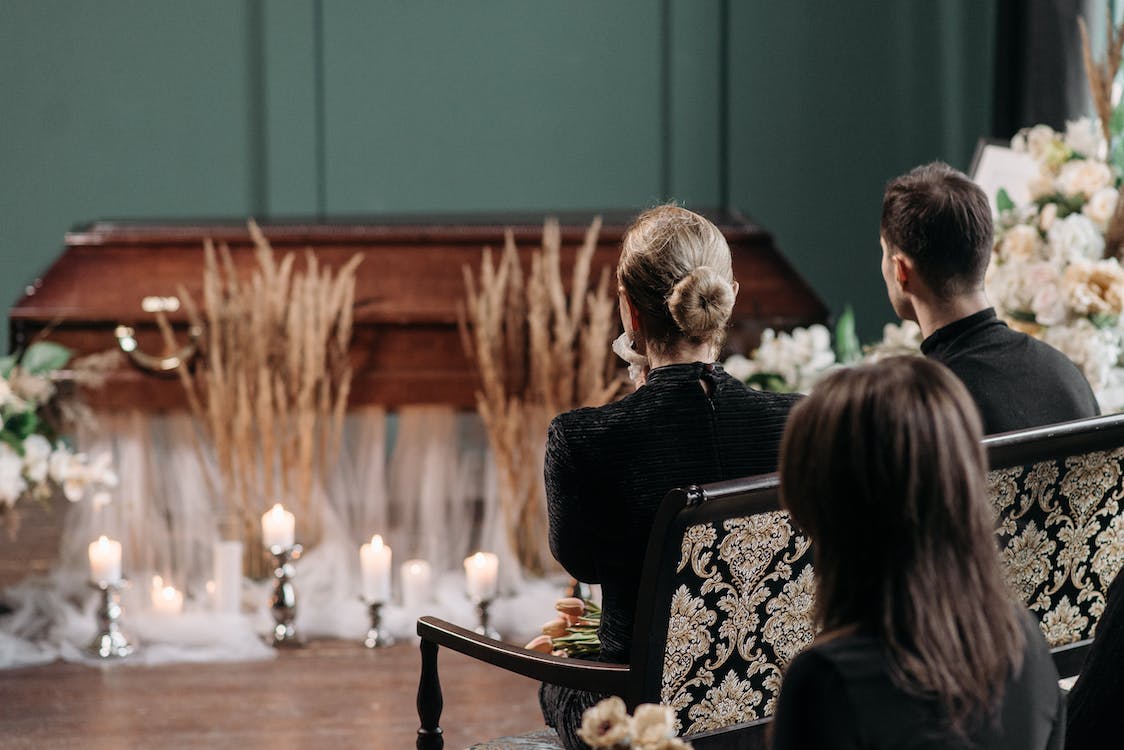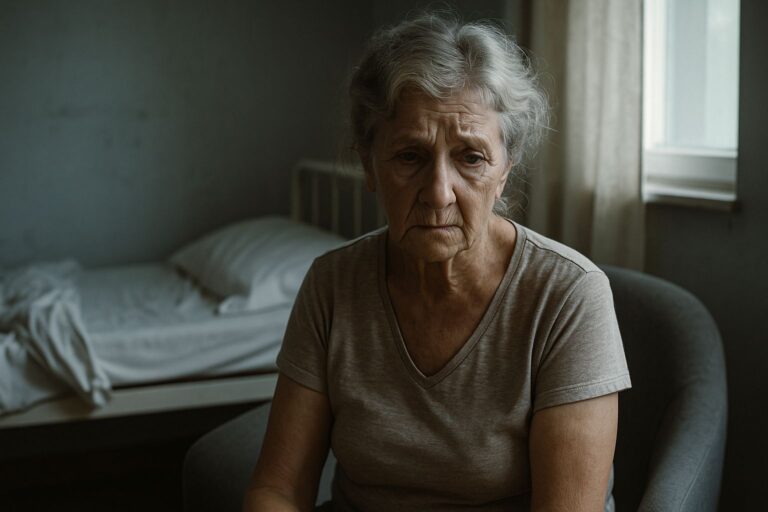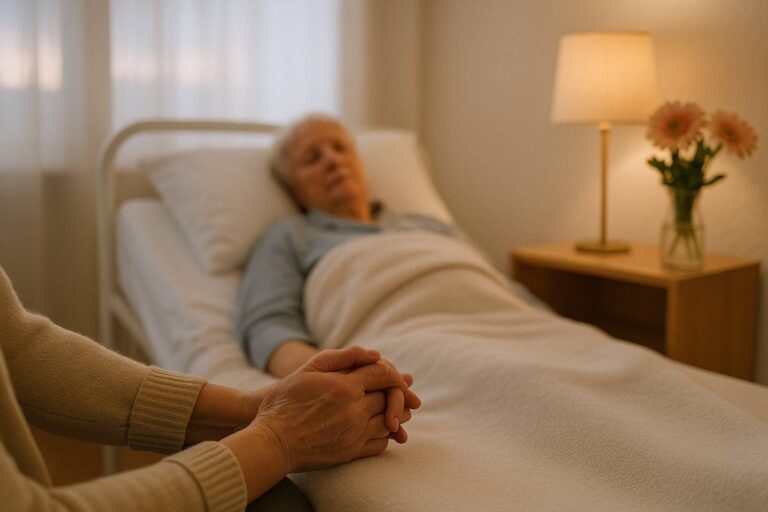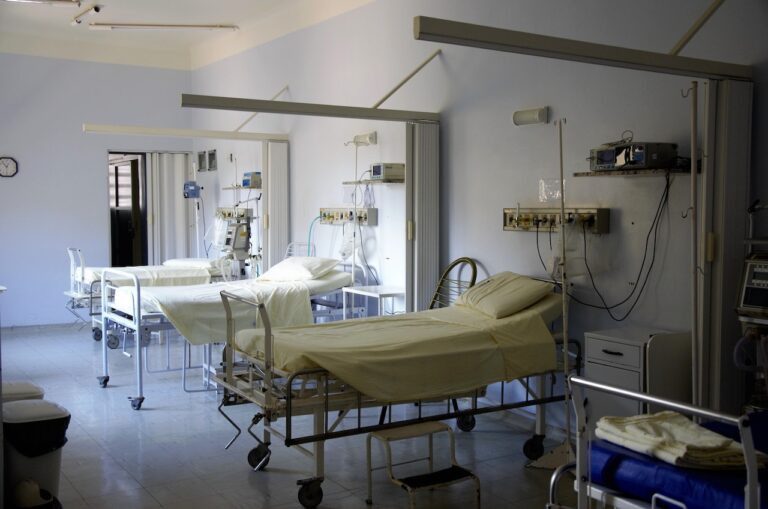How Long After Death is a Funeral
When someone dies, the world shifts. The clock doesn’t stop, but everything else feels like it does. And right in the middle of the tears and the phone calls and the paperwork, this quiet, practical question shows up:
“How long do we have before the funeral?”
Now, that might sound like a simple logistical thing — but I’ve been doing this long enough to tell you: it’s never just about logistics. It’s about faith. It’s about family. It’s about flights from out of town, clergy schedules, legal documents, and sometimes just needing a moment to breathe.
Some religions call for burial the same day. Some families need two weeks to get everyone together. And some people feel completely stuck, not knowing what’s “allowed” or expected — especially when grief makes every task feel ten times heavier.
That’s why I put this guide together. Not full of fluff or empty tradition, but real-world guidance for real families dealing with real loss. You’ll find timelines, cultural customs, legal realities, preservation options, and even examples of what happens when things don’t go as planned. Because let’s be honest — life rarely wraps things up in a neat little bow.
You don’t have to figure all of this out alone. Let’s walk through it together.
Standard Timeframes and What Affects Them
So let’s start with the basics: how long after death does a funeral usually happen?
In most cases, the funeral takes place within three to seven days after someone passes. That’s the general window. But I’ll tell you right now — “general” doesn’t mean “universal.” I’ve worked with families who planned services within 24 hours, and others who waited two weeks or more. Both were perfectly right for their situation.
Here’s what really affects the timing:
Legal and Administrative Delays
Death certificates don’t just print themselves. Depending on your location, you might need approvals from a doctor, a coroner, or even a government agency. And if the death was unexpected or involved any kind of investigation or autopsy? That clock stretches fast.
Religious and Cultural Traditions
Some traditions call for immediate burial — often within 24 hours. Others allow for more flexibility or have their own timelines for viewing, cremation, or memorial services. (We’ll get into all of that in the next section.)
Funeral Home and Venue Scheduling
During busy times of the year — holidays, for example — funeral homes and places of worship can book up quickly. The same goes for gravesites or crematoriums.
Family Logistics
I can’t tell you how often this one causes stress. Someone’s flying in from overseas. Someone else can’t get time off work until next week. And suddenly, “three to seven days” feels like a cruel joke. But guess what? It’s okay to wait — as long as the body is properly preserved (we’ll cover that too).
Emotional Readiness
Let’s not overlook this. Some families want to move fast to find closure. Others need time — to gather photos, to write eulogies, to breathe. There’s no wrong way to grieve. And there’s no shame in asking for a little more time if you need it. Not everyone can cope with loss whether they knew death was coming or not.
Religious and Cultural Practices That Shape Funeral Timing

Let me be plain: when someone dies, timing isn’t always up to the family. In many faith traditions, there’s already a blueprint — a set of sacred instructions that dictate exactly how and when things should happen. And in moments of grief, those rituals can be an anchor. They tell you what to do when everything else feels impossible.
To really understand how long after death is a funeral, we’ll have to consider what that looks like across some of the most common religions.
Christianity
Most Christian families hold funerals within three to seven days after death. That gives enough time for relatives to travel, clergy to prepare, and funeral homes to arrange viewings or services. In Catholic and many Protestant traditions, a wake or visitation might take place the night before, sometimes with prayers or a rosary.
Orthodox Christianity has more specific timing. Funerals are often held on the third day after death, with additional memorials on the 9th and 40th days. These milestones aren’t random — they reflect deep spiritual beliefs about the soul’s journey after death.
Judaism
Jewish custom is crystal clear: bury the dead as quickly as possible, ideally within 24 hours. But that doesn’t mean rushing for the sake of rushing — it’s about respect. There are exceptions, of course, like Sabbath or legal requirements. Once the burial is done, the family enters a period of mourning called shiva — seven days spent sitting, grieving, and being cared for by their community. It’s structured, it’s sacred, and for many families, it’s healing.
Islam
Muslim families also follow a fast timeline — burial typically happens within 24 hours. Before that, the body is washed and wrapped in a white shroud during a sacred ritual known as ghusl. There’s no embalming, no cosmetics, no distractions — just simplicity and dignity. Cremation is not permitted, and prayers (Salat al-Janazah) are performed before the burial. The mourning period varies, but for close family, it usually lasts three days. For widows, it extends to four months and ten days, in keeping with Islamic law.
Hinduism
In Hindu traditions, cremation generally happens within 24 hours. The rituals are led by the eldest son or closest male relative, and they’re deeply symbolic — from washing the body to lighting the funeral pyre. After cremation, the family observes a 13-day mourning period. During that time, they perform rituals to help the soul detach from this life and move toward the next. On the 13th day, prayers and offerings mark the end of mourning and a return to daily life.
Buddhism
Buddhist funerals can vary quite a bit depending on the country and the school of thought, but many take place within a few days. Some traditions focus on helping the soul through a transitional state called bardo — a kind of spiritual waiting room. Ceremonies may involve chanting, incense, and offerings. It’s common to see additional memorial services on the 7th, 49th, and even 100th day after death, each one marking a spiritual checkpoint for the soul’s journey.
Legal and Logistical Considerations That Can Cause Delays
Now let’s talk brass tacks.
Even if you’ve got the religious side figured out and the family’s ready, sometimes the paperwork — or plain old red tape — gets in the way. I’ve seen more funerals delayed by signatures, schedules, and government hold-ups than anything else. It’s frustrating, especially when emotions are raw, but knowing what to expect can keep you from being blindsided.
Death Certificate Delays
Before anything else happens — before cremation, burial, or even booking the service — you need an official death certificate. Depending on where you live, this could take anywhere from a few hours to a few days. If the doctor or coroner is backed up, expect delays.
And if the cause of death isn’t immediately clear? That brings us to…
Autopsies and Investigations
When someone dies unexpectedly, especially at home or without a known illness, the authorities may require an autopsy. That process alone can push funeral plans back by a week or more. I’ve seen families stuck in limbo waiting for the body to be released. No one likes it, but it’s often out of your hands.
Transportation Issues
If your loved one died in another state or country, you’ll need time — and coordination — to bring them home. Repatriating remains involves permits, health department approvals, and sometimes even airline availability. This alone can add several days to the timeline.
Funeral Home and Clergy Scheduling
Believe it or not, sometimes the delay comes down to simple availability. Your preferred funeral home might be booked. Your pastor might be out of town. The burial site may not be ready. These are the realities most people don’t think about until they’re neck-deep in planning.
Weather, Holidays, and Public Events
You’d be surprised how often snowstorms, hurricanes, or even national holidays put things on pause. And in rare cases, public events (like protests or parades) can affect access to venues or roads.
Body Preparation and Preservation Options
Now let’s get into a topic people shy away from — but shouldn’t. What happens to the body between death and the funeral? It’s a hard question, but if you’re dealing with any kind of delay, it matters more than you think.
Not every funeral happens within 24 or 48 hours. Travel arrangements, legal delays, or just needing time to grieve can push things out by a week or more. And when that happens, proper preservation isn’t just respectful — it’s necessary.
Embalming
If you’re planning a viewing or expecting a delay, embalming is often recommended — and in some places, required. It slows decomposition, restores a natural appearance, and helps families say goodbye in a more peaceful setting.
But let’s be clear: embalming is a choice. It’s not legally required everywhere, and some religious traditions (like Judaism and Islam) strictly forbid it. It’s a deeply personal decision, and you should never feel pressured either way.
Refrigeration
Not everyone wants or needs embalming. In many cases — especially if the funeral is within a few days — refrigeration is a perfectly acceptable alternative. Most funeral homes are equipped to store the body in cold storage, which keeps it preserved without the use of chemicals.
This is often the option families choose when they’re planning a quick, closed-casket service or when the body will be cremated without public viewing.
Cremation Timing
If cremation is planned, you may have more flexibility with timing. Some families hold a memorial service weeks or even months after the cremation, especially if loved ones need time to gather. Others hold a service right before or after the cremation — it really depends on personal preference.
Keep in mind, though, there are still waiting periods and paperwork involved with cremation. Most jurisdictions require a certain number of hours between death and the procedure, plus permits and approvals from the medical examiner.
Planning and Scheduling the Funeral
Once you’ve taken care of the basics — legal forms, preservation, religious considerations — you’re ready to actually plan the funeral. And let me tell you, this is where the real juggling act begins.
No matter how organized you are, this part always takes longer than people expect. You’re coordinating people, places, feelings, and in many cases, grief that’s still too fresh to speak through.
Here’s what tends to shape the schedule the most.
Funeral Home Availability
Not all funeral homes operate on the same timeline, especially if you’re in a rural area or scheduling during a peak season (yes, that’s a thing). Holidays, local events, or even just a particularly bad flu season can mean delays.
And sometimes the specific staff you want — the funeral director you trust, or the person who helped you with a past service — might not be available for several days. It’s okay to wait for the right person.
Venue and Officiant Scheduling
If you’re using a place of worship or a public venue, you’ll need to work around their calendars, too. That priest or pastor who meant so much to your family might have three services booked already. The chapel might be undergoing renovations. These things happen.
And if you’re having a graveside service? Check the cemetery’s availability. Yes, you have to schedule that too.
Travel and Family Coordination
This one gets underestimated constantly. Families today are spread out all over the place. When someone dies, everyone has to drop what they’re doing, book flights, ask for time off, and figure out where they’re sleeping. That takes time.
I’ve seen families choose to delay a service by a week or more so that everyone could be there. If you ask me, that’s a good enough reason.
Personal Preparation
And then there’s this: not everyone is ready to walk into a funeral three days after losing someone. You may need time to pull together photos, write a eulogy, create a slideshow, or just sit in the quiet and process what happened.
Give yourself that time. The funeral will be there when you’re ready. You only get one chance to do it — so don’t let a deadline rob it of its meaning.
Special Circumstances That Can Extend the Timeline
Sometimes, even when everything’s lined up — the death certificate is ready, the funeral home is available, the family’s on board — something unexpected comes along and pushes everything out. And in those moments, it helps to know: you’re not alone, and you’re not doing anything wrong.
Here are some of the more common (and not-so-common) situations that can affect funeral timing.
High-Profile or Public Funerals
If your loved one was a public figure — or even just deeply connected in the community — things can take longer. Public viewings, community tributes, media coordination, and ceremonial events all add time. These aren’t just funerals; they’re productions. Beautiful, meaningful, and logistically complex.
Even state funerals, like those for national leaders or religious icons, can stretch over a week or more. Case in point: when Pope Benedict XVI died, the mourning period lasted nine full days before the funeral was held at the Vatican.
Delayed Discoveries
This one’s harder to talk about, but it’s real. Sometimes, a person dies and their passing isn’t discovered immediately — especially if they lived alone or were in a remote location. In those cases, the timeline resets the moment the body is found, and there may be a forensic investigation, autopsy, or even identification process involved.
All of this delays the funeral — and brings with it another layer of emotional difficulty. I’ve worked with families in this exact situation. It’s heartbreaking, but it’s not uncommon. And yes, funeral directors know how to handle it with care and professionalism.
Legal Disputes or Delays
Believe it or not, there are times when a funeral gets delayed because of disagreements. Arguments over the will. Family feuds. Disputes about burial vs. cremation. These things happen more often than you’d think, and when they do, they can stall everything.
Courts can get involved. Executors may need to step in. And in rare cases, the body must be held until legal authority is sorted out. If this sounds like your situation — please get guidance early. A good attorney and a clear-headed funeral director can make all the difference.
Health and Safety Protocols
In times of public health crises — like during the COVID-19 pandemic — funerals were delayed for weeks or even months due to safety restrictions. Limits on gatherings, travel bans, and quarantines made traditional services impossible.
While most of those restrictions have lifted, some protocols still exist in certain places. Always check with your local funeral provider if you’re unsure.
Memorial Services and Delayed Tributes
Sometimes the funeral doesn’t — or can’t — happen right away. And you know what? That’s okay. Because a meaningful goodbye doesn’t have to follow a deadline.
In fact, many families are shifting toward memorial services that take place days, weeks, or even months after a person’s death. And while that might seem unconventional to some, it often creates space for deeper reflection, more complete planning, and broader family participation.
Here’s what to know.
What’s a Memorial Service?
A memorial service is a ceremony held to honor someone who has died, but without the body present. This is especially common after cremation, or when the funeral was private, rushed, or not possible for logistical reasons.
I’ve helped families hold memorials at churches, community centers, beaches, gardens — you name it. These services often feel more personal, because they’re not constrained by time or formality. There’s more storytelling. More music. More space to breathe.
When Do Memorials Typically Happen?
There’s no hard rule, and that’s the beauty of it. Some families choose to hold a memorial a week after the cremation. Others wait a month to get everyone together. I’ve even seen tributes planned on what would’ve been the person’s birthday, or on the anniversary of their passing.
What matters is that it feels right. Not rushed. Not forced. Just… right.
Delayed Services by Necessity
During the COVID-19 pandemic, thousands of families were forced to delay funerals or hold virtual goodbyes. Months later, many of those same families gathered to hold in-person memorials — not because they had to, but because they needed that final moment of togetherness.
The takeaway? Even if a “traditional” funeral doesn’t happen right away, you can still honor your loved one with all the dignity and love they deserve — on your timeline.
What About Annual Remembrances?
In many cultures, the grieving doesn’t end after the service. It continues with annual rituals, like lighting a candle, visiting the gravesite, or holding a small gathering. These aren’t formal funerals — they’re touchpoints. Ways to keep the memory alive and acknowledge the space that person once filled.
If you ever feel like you didn’t get enough time to say goodbye, just know: you can create your own moment. Whether it’s a ceremony, a dinner, or a quiet walk, it still counts.
Frequently Asked Questions About Funeral Timing
Every family has questions when a loved one passes — and most of them circle back to the same worry: “Are we doing this right?”
Let’s put some of those common concerns to rest.
Can a funeral be delayed for a week or more?
Yes — and it often is. Whether it’s due to travel arrangements, scheduling issues, legal delays, or just the need for more time to prepare emotionally, delaying a funeral by a week or longer is absolutely acceptable. Just be sure the body is properly preserved, either through embalming or refrigeration.
Is there a legal deadline for funerals?
That depends on your country, state, or province. Some places have specific rules about how long a body can be kept without burial or cremation — typically 7 to 10 days. But extensions can usually be granted with proper documentation. Funeral homes are familiar with these regulations and will guide you accordingly.
What happens if there’s an autopsy?
Autopsies can delay funeral plans by several days or more. The medical examiner must complete their work before releasing the body. If foul play is suspected or the death is unexplained, this process could take even longer. During that time, the family may not be allowed to view the body.
Can we have a funeral without the body present?
Absolutely. That’s called a memorial service, and it’s becoming more and more common. It allows families to gather and honor the deceased even when burial or cremation has already happened — or isn’t possible yet. These services are especially helpful when distance, budget, or time make a traditional funeral difficult.
Do certain religions allow for delays?
Some do — others don’t. Islam and Judaism typically require burial within 24 hours. Christianity and Buddhism are more flexible. Hinduism often encourages cremation within a day, but modern adaptations allow for some delay, especially when family needs time to assemble.
If you’re unsure, consult your religious leader or spiritual guide. Most will offer compassionate, practical advice for balancing faith with real-world constraints.
Closing Thoughts: Take the Time You Need
If there’s one thing I want you to walk away with, it’s this:
There’s no perfect schedule for saying goodbye.
Grief doesn’t punch a timecard. It doesn’t care if it’s been two days or two weeks. What matters — what truly matters — is that when the time comes to honor your loved one, you feel ready.
Yes, some traditions call for swift burials. Yes, laws and logistics can push things faster or slower than you’d like. But you are allowed to ask questions. You are allowed to pause. You are allowed to hold a funeral that reflects who your loved one was — and who your family is now.
Whether you hold the service in 24 hours, 7 days, or 3 months, it is still a funeral. It still matters. And it is still sacred.
So don’t let anyone rush you unless you want to be rushed. Don’t let a timeline dictate your grief. And above all, don’t ever forget: this is your moment to honor someone’s life. Do it in the way that brings peace, meaning, and comfort — to them and to you.
You’ll only do this once. Let it be honest.
Let it be yours.
Share This Article:






